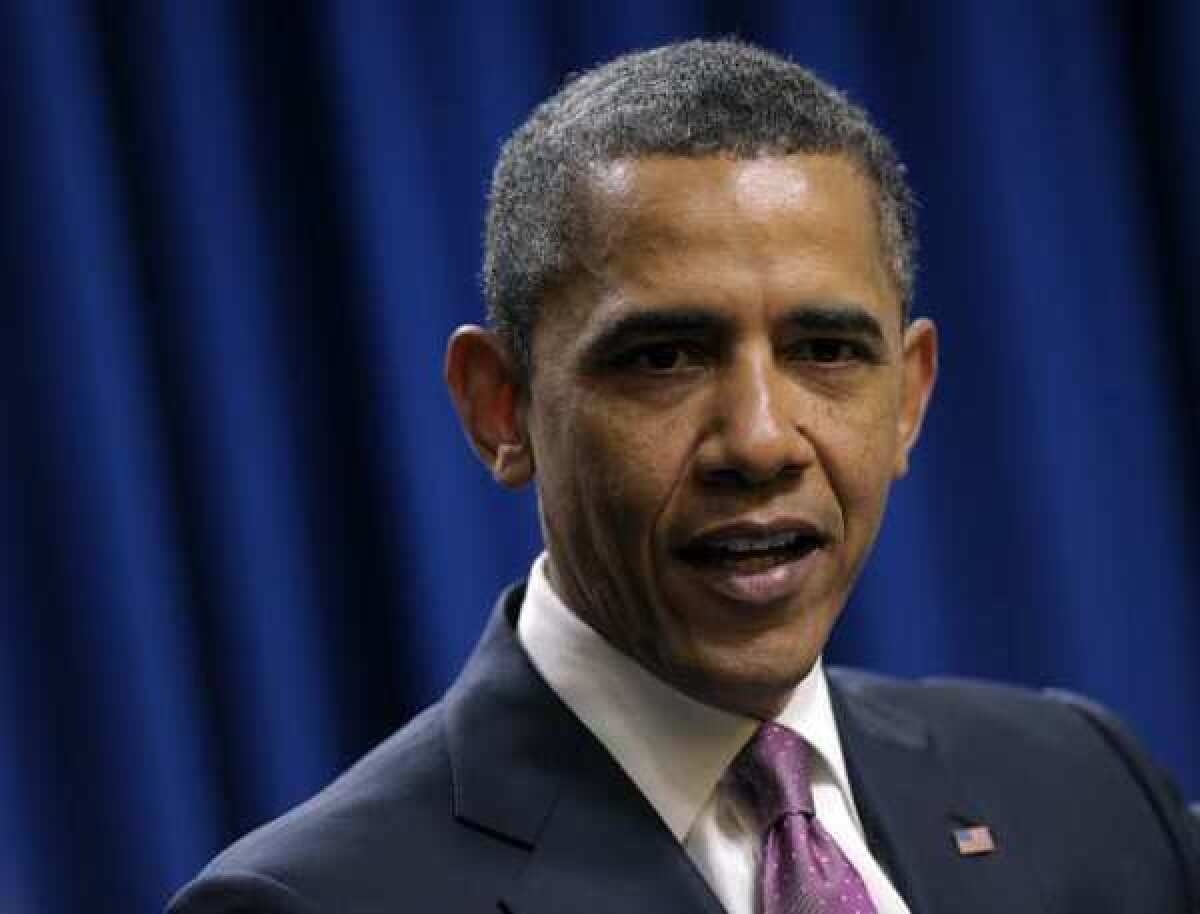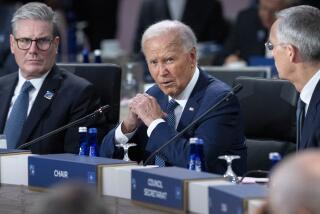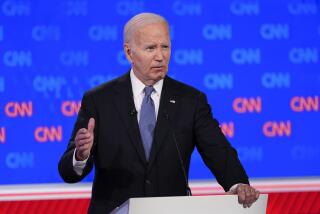Daum: Too brainy to be president?

- Share via
As devotees of Barack Obama know all too well, qualities that made him so attractive as a candidate — an affinity for subtle arguments, a tendency to carefully weigh his options — have at times proved less useful in his role as president. That carefulness has been read as indecisiveness. The subtle arguments have sounded, to some ears, like hedging. In response, the president has simplified his rhetoric. The nuances of the 2009 Cairo speech about relations between the U.S. and the Muslim world have given way to chest thumping over killing Osama bin Laden. The sophistication of the speech on race he delivered during the 2008 campaign has morphed into sentimental headline grabbers: “If I had a son, he’d look like Trayvon.”
But the old-school Obama is on delightful and rather hilarious display in the June issue of Vanity Fair, which features an adaptation of some especially juicy portions of David Maraniss’ forthcoming biography, “Barack Obama: The Story.” Drawing from interviews with the president’s old girlfriends (one kept letters; the other kept a detailed journal), Maraniss reveals an Obama brimming with the kind of existential angst and intellectual precocity usually reserved for characters in Woody Allen movies.
It’s fitting that the setting was New York City, where Obama moved at age 20 when he transferred to Columbia University from Occidental College in Los Angeles. To Alex McNear, a girlfriend at Occidental, Obama holds forth on T.S. Eliot. He calls “The Waste Land” “an ecstatic vision which runs from Munzer to Yeats” and encourages McNear to “read [Eliot’s] essay on Tradition and the Individual Talent, as well as Four Quartets, when he’s less concerned with depicting moribund Europe.... Remember how I said there’s a certain kind of conservatism which I respect more than bourgeois liberalism — Eliot is of this type.”
Pretty hot stuff. Nonetheless, Obama’s relationship with McNear eventually petered out, and he later met Genevieve Cook, a graduate student at Bank Street College in New York. As Cook explained to Maraniss, the couple spent time in Obama’s rented room on West 114th Street, where the future president “would lounge around, drinking coffee and solving the New York Times crossword puzzle, bare-chested, and wearing a blue and white sarong.”
Cook’s journals suggest that despite his “sexual warmth,” Obama was a bit of a tedious boyfriend, and not just because he was a pretentious dude in a sarong. He was also withdrawn and withholding. When Cook said, “I love you,” he replied, “Thank you.”
The documentation is cringe-worthy in places, but it’s also remarkable in that it reminds us just how little the young Obama resembles a potential president of the United States. He was so self-consciously cerebral, he appears headed for the Supreme Court or the State Department, not to a place where braininess and critical thinking can often seem less prized than gut instincts and schmoozing skills. Not a place, in other words, like the Oval Office.
To many who were feverishly devoted to Obama’s candidacy four years ago, what was most exciting wasn’t just the idea that American voters could elect a black man. It was the idea that we could elect — and be represented by — someone who was unapologetically intellectual. But in the current political climate, intellectual can too often equal ineffectual. Thanks to a system that’s broken by partisanship and pandering to the lowest common denominator, being in politics — even being the president — may have less to do with holding your ground than holding your nose.
It’s hard not to come away from the Vanity Fair article without feeling, strangely enough, that the White House is holding Obama back. The gulf between the brilliant young man who wanted to change the world and the stymied president who can barely pass a piece of legislation, the cosmopolitan wearer of the sarong and the lock-step wearer of the flag pin, suggests he could have served the American people far more effectively if he weren’t bogged down being the leader of the free world.
In other words, it’s not necessarily a thinking man’s game now. Tell a smart kid he might grow up to be president and, these days, he just may tell you he has better things to do.



